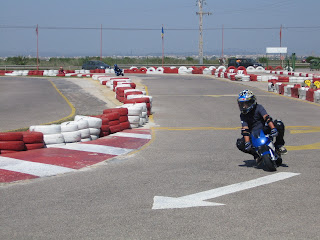skip to main |
skip to sidebar

The term Web 2.0 was coined by Tim O'Reilly in 2004 to refer to a second generation of Web-based user communities and a range of special services such as social networks, blogs, wikis or folksonomy, which promote agile collaboration and exchange of information between users. The original concept of the Web (in this context, called Web 1.0) was static HTML pages that were not updated frequently. The success of the dot-com sites depended on more dynamic (sometimes called Web 1.5) where CMS served dynamic HTML pages created on the fly from an updated database. In both respects, getting hits (visits) and visual aesthetics were considered as very important factors. The proponents of the approach to Web 2.0 believe that the use of the site is aimed at interaction and social networks that can serve content that exploits the effects of networks or not creating visual and interactive websites. In other words, websites 2.0 acting more as meeting points, or webs dependent users, as traditional webs.
Credits: Wikipedia
The technology and educatioN!First, access to technology is not everything. To have and use a TV or a microwave oven does not know "get the juice", "seize". The microwave oven is a good example. It is an exponent of technology. We know that cooking faster. And nothing else. Ah, some say that their emissions  cause cancer. It's a simple choice: if I want to save time or if I have fear. If I get carried away by advertising or if I get carried away by my concern. By failing to see beyond, to not imagine "how things would be" used and if they knew whether various ways to use it, is a matter of yes or no. But if we were there, only act on impulse, for reaction. I need to know more about the benefits and I need to know more about the conditions under which I can use it safely. I need to "learn" to use it to my advantage. The important part is the formation of the criterion: where and when to use NOT use, when I should (or should my family, my students) and when not appropriate. The technology is at the service of human beings. And the human being in society is called citizen. THE citizen acts to be better and help your society to be better. To do this, you need to act taking into account the consequences of their actions, conscientiously. You need to act with knowledge, we must all act together (that is what experts call "knowledge society"). And in relation to technology, before using it, we know it. Only then we will return some "consumers" of technology, but develop the technology as having a positive impact for us citizens. Finally, where is the technology? The technology is not only the equipment (computer, the microwave oven), is the social activity of improving the world through science. So do people with their knowledge. The technology is in the mind of what you are looking for optimal or the best with his knowledge. So the important thing is not learn to manage technology, but learn to be citizens in a knowledge society.
cause cancer. It's a simple choice: if I want to save time or if I have fear. If I get carried away by advertising or if I get carried away by my concern. By failing to see beyond, to not imagine "how things would be" used and if they knew whether various ways to use it, is a matter of yes or no. But if we were there, only act on impulse, for reaction. I need to know more about the benefits and I need to know more about the conditions under which I can use it safely. I need to "learn" to use it to my advantage. The important part is the formation of the criterion: where and when to use NOT use, when I should (or should my family, my students) and when not appropriate. The technology is at the service of human beings. And the human being in society is called citizen. THE citizen acts to be better and help your society to be better. To do this, you need to act taking into account the consequences of their actions, conscientiously. You need to act with knowledge, we must all act together (that is what experts call "knowledge society"). And in relation to technology, before using it, we know it. Only then we will return some "consumers" of technology, but develop the technology as having a positive impact for us citizens. Finally, where is the technology? The technology is not only the equipment (computer, the microwave oven), is the social activity of improving the world through science. So do people with their knowledge. The technology is in the mind of what you are looking for optimal or the best with his knowledge. So the important thing is not learn to manage technology, but learn to be citizens in a knowledge society.


